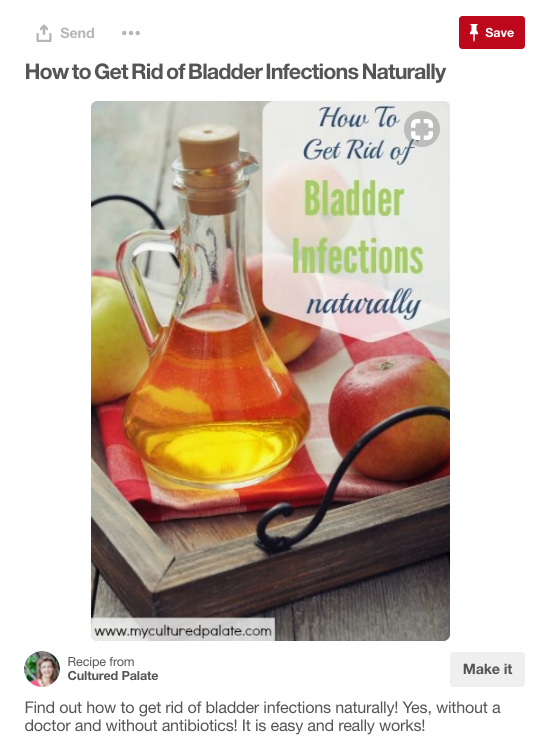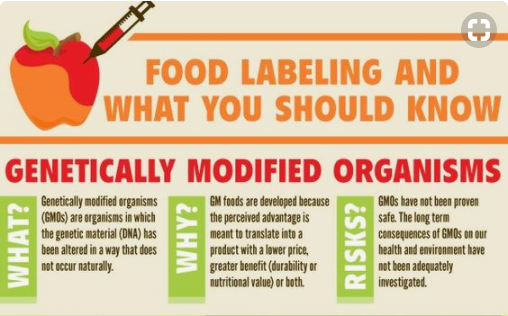Pinterest is where many people turn for ideas about how to be healthy. But the recipes, nutrition advice, and other colorful infographics that the site is so well-known for are rife with bad information about health and science.

This kind of misinformation is baseless and ineffective at best, and harmful at worst — some pins, for example, make unsubstantiated claims about preventing and treating cancer — but Pinterest says that it is only a minor problem for the site.
With little effort over the past month, BuzzFeed News found more than a dozen misleading health-related pins that were being shared widely.
One pin, saved to about 13,000 boards, falsely claimed: "Even Doctors Can Not Explain This: Boiled Cinnamon And Honey Is The Cure For Many Health Problems," from cancer to arthritis to gall bladder infections. Another pin with a bogus claim — "Retired Pharmacy Chief Said: 'The World Needs To Know, Alkaline Water Kills Cancer'" — was saved to more than 16,500 boards.

One pin, saved to 16,000 boards, suggested in its title that "vitamin B17" could be a "cancer treatment." But that's a nickname for a chemical compound that is not an officially recognized vitamin and does not cure cancer. In fact, large doses can generate dangerous or even fatal levels of cyanide.
The title of yet another pin claimed that genetically modified foods are "Linked to Tumors, Allergies and Early Death," which is not supported by scientific evidence. It was saved to about 15,000 boards.
Some of the dozen or so false or misleading health pins that BuzzFeed News found were removed after we contacted Pinterest and the authors of the pins for comment. Pinterest said that it took action on the pins that violated its terms of service.
Misinformation on Pinterest isn't just limited to health advice: Earlier this month, the Washington Post also reported that the site had been flooded with political content created by Russian operatives in an attempt to sway the 2016 election.
Adelin Cai, head of policy at Pinterest, told BuzzFeed News that a "small volume" of medical misinformation exists on the platform, although she did not know what percentage of the overall content it comprised.
"We have so much content on the platform. It's curated by millions of people across a variety of categories," Cai said. "Sometimes those ideas might be controversial or cause some public concern, or they just might not be for everyone."
She added, "At the end of the day, what we're really concerned with is making Pinterest a really safe place so people can find and discover the things they really love."

Pinterest largely relies on users to report problematic content, Cai said.
Pinners can report individual pins by clicking on them and selecting from reasons like "I don't want to see this," "This is spam," and "This goes against Pinterest's guidelines." From there, Cai's team can decide whether to delete a pin or make it "undiscoverable," which means that it still exists on a person's board but that other users cannot search for it.
In its guidelines for community posters, Pinterest says it removes content that "promotes harmful behavior."
One type of that content is "medical misinformation." The company says, "We'll take action on content spreading medical misinformation that could lead to serious harm to Pinners – for example, claims of curing diseases currently considered by the medical community to be incurable." Cai said in an interview that this list includes cancer and epilepsy. (She added that advertisers are not allowed to promote medical misinformation.)
But Pinterest's definition of medical misinformation overlooks other forms of unsubstantiated health information.
One pin, for example, linked to a raw apple cider vinegar recipe, claiming it could cure urinary tract infections.

In the text of the pin, the author claimed, "Find out how to get rid of bladder infections naturally! Yes, without a doctor and without antibiotics! It is easy and really works!" Although home remedies can help ease the discomfort of UTIs, the most effective line of treatment is antibiotics, and letting UTIs go untreated can lead to more severe kidney infections.
Dina Marie Oswald, who runs MyCulturedPalate.com, defended that recipe to BuzzFeed News, saying that people should try natural remedies before resorting to traditional medicine. "There's nothing on My Cultured Palate that I have not personally used," she said. "These are things that really work."
A different pin claimed that genetically modified foods "have not been proven safe," even though studies have overall concluded that they are as inherently safe as conventional foods. Both pins are still up.
"When content comes to us, we will consider it and see whether we consider it appropriate for the platform or not," Cai said, when presented with these types of examples. "We make tweaks internally and publish things externally if we change our policies."

Some of the people who've made these misleading health pins admit that the claims they make aren't always valid.
Josh Axe, who runs the natural health website DrAxe.com, is a self-described "doctor of natural medicine, doctor of chiropractic and clinical nutritionist with a passion to help people get healthy by using food as medicine." Infographics that the site posted on Pinterest, and linked back to his website, suggested that "vitamin B17" was a potential "cancer treatment" and that genetically modified food is linked to leukemia, liver toxicity, kidney failure, and gut inflammation.
A DrAxe.com spokesperson said his team had removed the pins after BuzzFeed News inquired about them. "Some articles on our site are older and don't contain the rigorous, accurate research that we've become known for," spokesperson Alex Loria said by email. "The GMO and the 'Vitamin B17' articles you point to are both faulty in some respects and have been taken down while they are reworked."
And Anne-Marie Nichols, a lifestyle and recipe blogger in Georgia, has pinned the popular infographic that claims that genetically modified food is not safe — even though she says she no longer believes that's true.

Via pinterest.com
Nichols told BuzzFeed News she posted the infographic, which was supplied to her by an outside company, on her Pinterest and her blog, This Mama Cooks, three to four years ago.
She's since deleted it from her blog, but it's still on her Pinterest, where it's been shared to more than 26,000 other boards. Nichols said that she has pinned thousands of images over the years — sometimes the same image multiple times in an effort to get pinners' eyeballs on it and drive traffic back to her blog, which is a common practice on the platform, she said. With Pinterest's user interface, it's hard even for her to find her own content.
"These boards are so gigantic, I couldn't go find it without scrolling and scrolling and scrolling," she said.
Some users say that even though Pinterest is an increasingly difficult place to capture people's attention, the website referral traffic is still too significant to be ignored. Health pins can help drive that traffic.
For example, a pin containing a juice recipe to cure a UTI "without antibiotics" has been saved to 37,000 boards. It was created by Lee Traister, who says Pinterest is her top source of traffic to her site ladyleeshome.com.
Traister told BuzzFeed News that Pinterest generates about 50% of the 50,000 to 70,000 monthly page views she gets on her site dedicated to homestead living. "I also post regularly on Facebook," she said. "But Pinterest is by far the greatest for bloggers in this niche as far as traffic goes."
Asked about the scientific basis for the claim that her juice recipe can cure a UTI, Traister said that a lot of commenters have said the recipe worked for them. But "every person is going to have to decide for themselves what they want to try," she said.
LINK: Inside The Anti-Science Forces Of The Internet
LINK: These People Are Making Money Off A Bogus Cancer Cure That Doctors Say Could Poison You
LINK: Women Say A Popular New Device To “Get Rid Of Cellulite” Left Them Injured
LINK: Celebrities On Instagram Love This Food Test, But Scientists Say It’s Bogus
from BuzzFeed - Tech https://www.buzzfeed.com/leticiamiranda/pinterest-bogus-health-pins?utm_term=4ldqpia
No comments:
Post a Comment